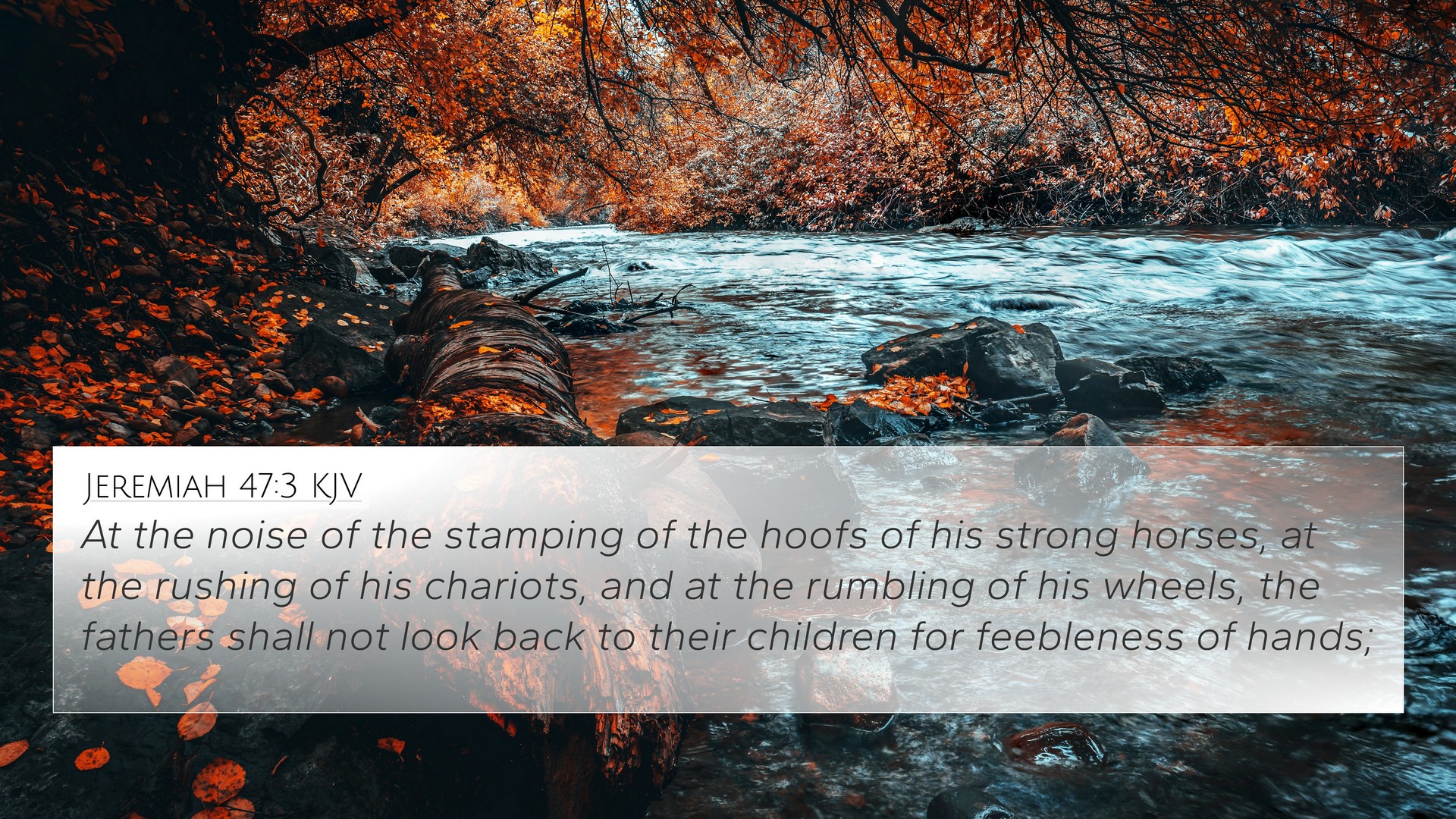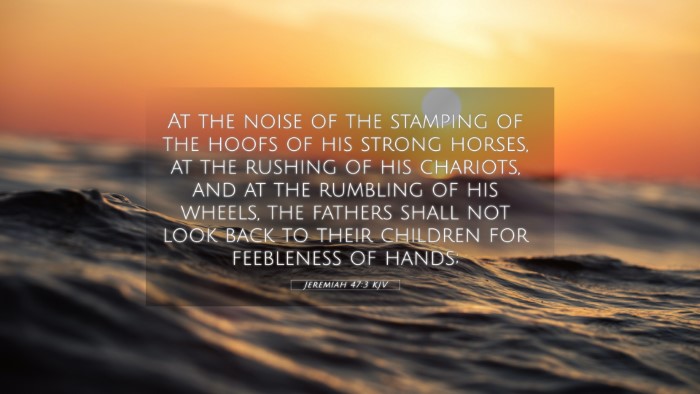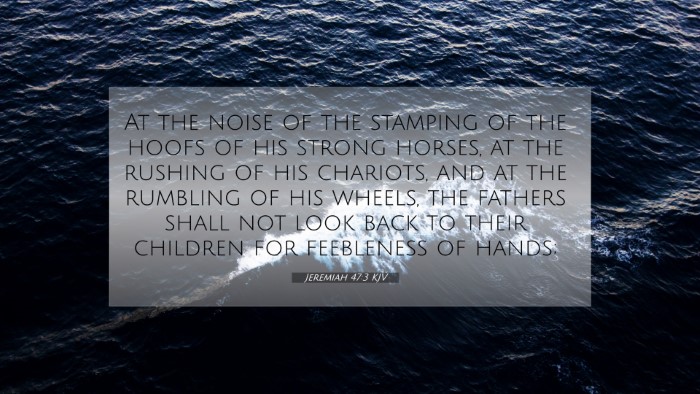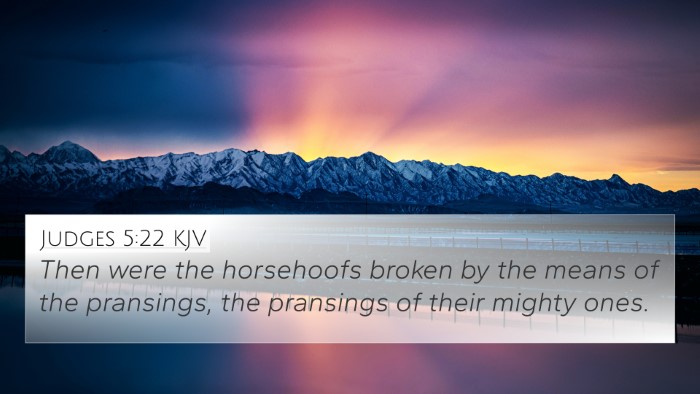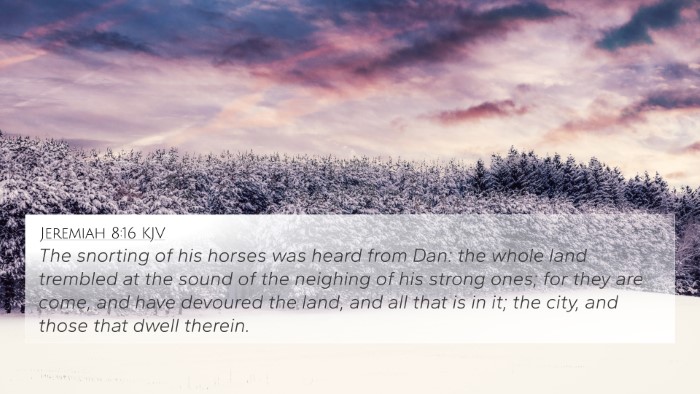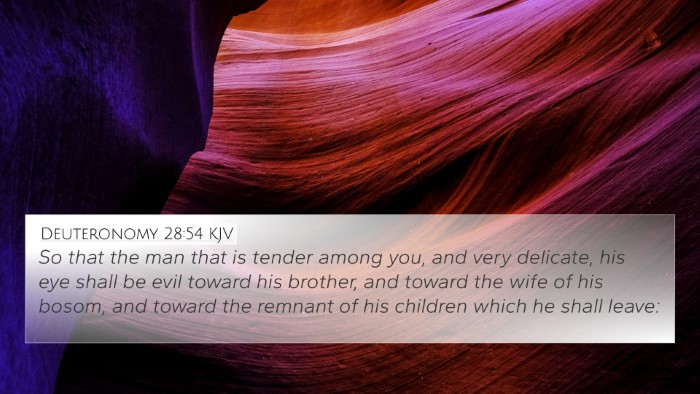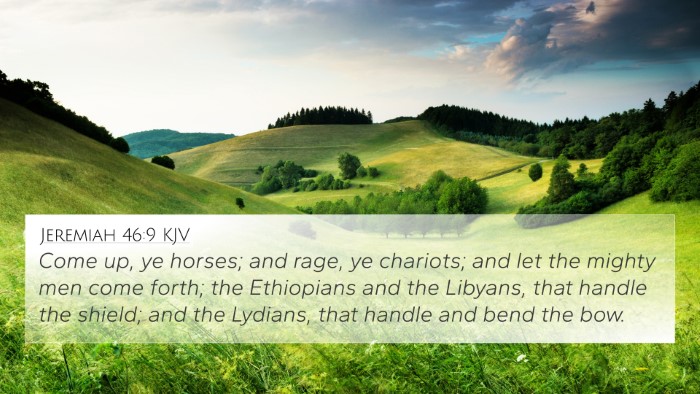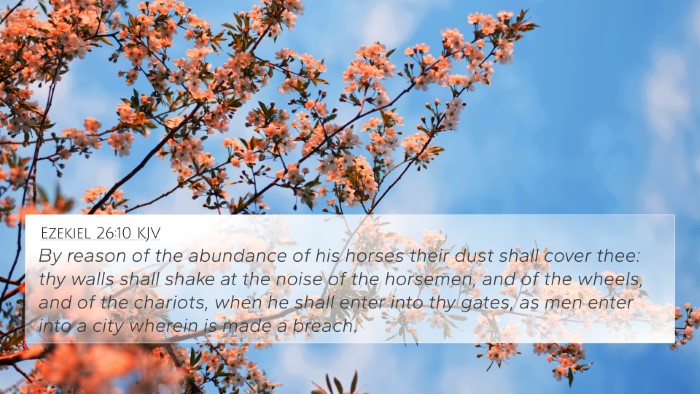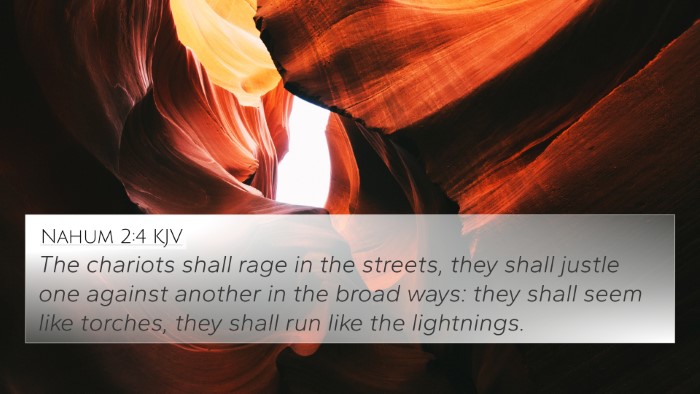Understanding Jeremiah 47:3
Jeremiah 47:3 states: "At the noise of the stamping of the hoofs of his strong horses, at the rushing of his chariots, and at the rumbling of their wheels, the fathers shall not look back to their children for feebleness of hands."
This verse captures the profound sense of terror and impending doom that accompanies the coming judgment upon the Philistines, symbolizing the repercussions of sin and the devastation of God's wrath.
Critical Insights
The verse's vivid imagery depicts a scene of destruction influenced by mighty forces – a motif frequent in prophetic literature. Both Matthew Henry and Adam Clarke interpret the chaos as indicative of not only physical danger but also spiritual implications.
Key Themes
-
Imminent Judgment: This prophecy illustrates the urgency of God's warning to His people and neighboring nations. Matthew Henry notes this as a moment of reckoning and a clear reminder of God’s sovereign authority.
-
Fear and Despair: As indicated in this verse, the devastation is so overwhelming that families fail to support each other in their hour of need, showcasing the breakdown of social order. Albert Barnes emphasizes the emotional toll on families during times of warfare.
-
Symbol of Desolation: The "strong horses" and "chariots" symbolize not only military might but also the futility of human strength against divine judgment. Adam Clarke points out this contrast between earthly power and spiritual realities.
Bible Verse Cross-References
To understand this verse within the larger Biblical narrative, we can establish connections between various scriptures:
- Ezekiel 30:4 - A prophecy about the sword coming upon Egypt, reflecting similar themes of war and destruction.
- Isaiah 13:7-8 - Describes the fear and anguish of those subjected to the Lord's judgment.
- Joel 2:1 - A call for alarm and recognition of God's powerful army, linking to themes of divine intervention in human affairs.
- Habakkuk 1:7 - Discusses the fierce nature of the Chaldeans, drawing parallels with the merciless force described in Jeremiah 47:3.
- Proverbs 1:27 - The terror that comes upon those who disregard wisdom, echoing the dread depicted in Jeremiah.
- Isaiah 15:5 - Lamentation in Moab as it faces destruction, reflecting fear and the plight of families torn apart.
- Psalms 55:4-5 - Expresses the deep anguish and terror that strikes the heart, emphasizing personal turmoil amidst societal chaos.
Comparative Bible Verse Analysis
The connections formed through cross-referencing these verses provide a more detailed understanding of the themes present in Jeremiah 47:3. The association with prophetic books reveals consistent motifs in God's message of impending judgment and moral decay.
Thematic Bible Verse Connections
Through layering these themes, we can grasp the wider implications of human frailty in the face of divine judgment. Links between Old and New Testament reveals a continuous dialogue about sin and its consequences. For example:
-
Revelation 6:15-17 - Highlights fear and despair during the day of judgment, akin to that experienced in Jeremiah 47:3.
-
Matthew 24:19 - Jesus speaks to the anguish that will come upon the earth in the last days, mirroring the sentiments found in Jeremiah’s prophecies.
Inter-Biblical Dialogue
This verse invites a reflective approach to how various prophecies converse with one another across scripture. The poignant fear expressed in Jeremiah's message resonates with a broader understanding of humanity's condition when alienated from God's protection.
Practical Application & Reflection
For those seeking deeper insights into how Jeremiah 47:3 and similar passages interact, tools for Bible cross-referencing can be invaluable. Resources such as Bible concordances and cross-reference Bible study guides illuminate these connections.
- Understanding Biblical Motivation: The themes of fear and despair prompt readers to evaluate their spiritual lives.
- Building a Firm Foundation: Studying cross-referenced verses strengthens one’s faith and understanding of God’s justice and mercy.
Conclusion
By exploring Bible verses that relate to each other, individuals enrich their understanding of scripture, gaining insights that inform their faith journey. Furthermore, harnessing the power of cross-referencing biblical texts allows followers of Christ to engage consistently with the Word and its profound implications for both ancient times and today.
